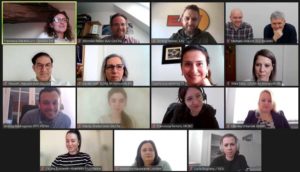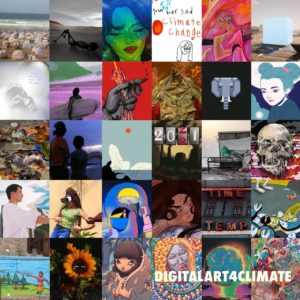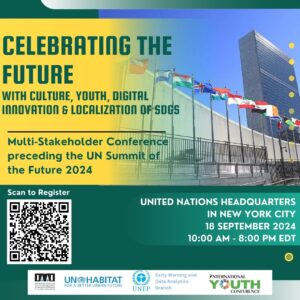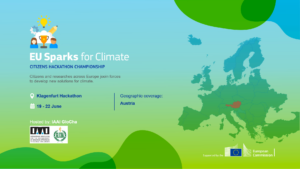Collaborative Global Commons Wealth Generation
Some Basic Ideas/Concepts of GloCha Global Commons Initiative in the Context of Rio 2012
Enlightened self-interest (but also global citizenship ethics leads to the same conclusions!)
Resilience in Networks of trust
Inventing/Defining/Conceptualizing New types of global commons
|
Basic idea: |
mobilizing all available and necessary resources for sustainable development. There is a need (which can be argued for in ethical terms but also in terms ofenlightened self-interest with a view towards potential future disruptive ecological and socio-economic crises) for transfer of resources into the common domain in order to increase societal cohesion and in order to implement the sustainable development paradigm of not infringing the resource basis of future generations. |
|
Sust. Dev ‘Global Commons’: |
Decentraly Managed Ecosystems Services Oriented World Heritage
|
|
Individual and collective aim: |
Passing on to Future generations more SD GlobComms Value than we have received from our ancestors |
|
Systemic Control necessity: |
new measures of wealth (instead of money) related to Global Commons needs to be introduced (we have to measure progress in investment in global commons; including knowledge, heart power,..) Linking up with OECD initiative (Chairs: Joseph Stiglitz and Amartya Sen) -> new measures of wealth;www.wikiprogress.org, UN DESA sustdev indicators partnerships, Earth Charter www.wevalue.org |
|
Instruments: |
Global Challenges World Cup (i.a. instrument for collecting information about preferences/evaluation of different types of tangible and intangible global commons à GCU (Global Commons Unit), the process towards finding meaningful approximations will take several years of experimentation and collective learning; starting point: 1 GCU = 1.000.000 € in 2011; in later stages direct links to money will probably not be meaningful anymore |
|
Basic Principles: |
joint ownership (incl. future generations) of globcomms, Decentralized, Transparent financial management, performance reporting(indicators), Trust based Management by Shared Vision, Trust, joint information system and Long-term Accountability |
|
Changing nature of philanthropy: |
the concept of joint ownership implies that there is no urgent need to transfer assets to another legal person; legal arrangements that provide fellow global citizens and future generations access to these ‘giving back to society’ resources are from a GloComm perspective OK |
|
Relevance for Science, Education and Innovation governance:
|
With such a conceptual framework which integrates multistakeholder and multilevel governance aspects (and web 2.0 for governance) very practical STI governance instruments can be developed for advancing philanthropic funding of different types of capacity building (like e.g. promotion of Open Educational Resources movement, Open Science, rewarding activities of STI stakeholders in the context of them fulfilling their social responsibility function etc. ) |
|
Legal structure for partnerships: |
use of GloCha label for fundraising implies accepting a legal agreement with IAAI (or other GloCha management authority) about use of raised funds (which have to be regarded as global commons) for the increase of global commons based on above stated basic principles, in case these principles are breached following sanctions can be used: use of logo is not allowed anymore, publishing in GloCha watchlist, all raised funds have to be transferred to the nearest GloCha Knowledge Centre
|
Global Citizenship Ethics and Multi-stakeholder Partnerships for Effective Global Governance
Global governance solely based on national governments and their coordination mechanisms is not sufficient anymore to cope with the magnitude of global challenges of our time. Resources of global civil society have to be integrated into global governance in order to harness the full potentials of wo&menkind for safeguarding our common future (especially in terms of knowledge and financial means for collaborative action but also in terms of coherence of individual choices and actions of global citizens that summed up constitute significant drivers of global challenges). People all around the world are concerned about the global problems, they know that their wellbeing will strongly be influenced by these global dimensions and they are willing to contribute their fair share to effective responses to these challenges on all relevant levels – thus contributing to effective global governance.
The concept of philanthropy – meaning donating money, goods, time, or effort for pursuing the common good or/and to support a charitable cause– is an important corrective to the mainstream of self interest focused market economy and consumerism which are among the root causes of many global environmental problems of 21st century.
There is an important role for philanthropy and global civic engagement to play in addressing global challenges and in building capacity for global societal change towards more sustainability. In order for positive systemic integration of philanthropy in global governance to function in a coherent way, a shared vision of a range of stakeholders is needed as well as there are needed new structures and processes forglobal cross-sectoral coordination. New institutional and legal frameworks for mobilization of resources of global civil society for global (especially environmental and economic) governance are needed and the UN Conference on Sustainable Development www.uncsd2012.org/ in Rio 2012 might be the window of opportunity of wo&menkind to achieve this paradigm shift.
The Normative Basis:
– Article 29 (1) of Universal Declaration on Human Rights
– Rio 2012 Charter on Shared Social Responsibilities for Global Commons and
Article 29 (1) of Universal Declaration on Human Rights (“Everyone has duties to the community in which alone the free and full development of his personality is possible.“) could serve – perhaps in combination withEarth Charter (www.earthcharterinaction.org) – as a normative foundation for the development of global citizenship ethics towards broad mobilization of philanthropic engagement globally.
V. REVIEW OF OPTIONS FOR POLICY-RELEVANT ETHICAL ACTION
V.4 Voluntary commitments
Ethical objectives do not necessarily need to be pursued by “policies” in the strict sense – still less by regulation that gives legal form to specific principles. Ethics can also be embedded in concrete social practices, and thereby have real effects on behaviour and social structures, by means of voluntary commitment, the essence of which is that those actors who subscribe to certain principles or values act unilaterally, without waiting for any requirement or incentive to do so. ..
On the other hand, the view was expressed in many workshops that the key challenge is to give a binding character to ethical principles. ..
The principle that the potential of voluntary commitments deserves careful study, and perhaps practical attention, has been quite widely supported. However, there has been little specific discussion of what exactly might be done, how and by whom to further such an objective. It appears therefore that further work is needed to reach practically relevant conclusions in this area.
Source: UNESCO, World Commission on the Ethics of Scientific Knowledge and Technology, Towards an Ethical Framework for Climate Change Policies –
Interim Report of the Extraordinary Session at UNESCO Headquarters, 28-30 June 2010, page 28
With “Rio 2012 Charter on Shared Social Responsibility for Global Commons” there would be established a shared vision which would help mobilize civic engagement in sustainable development and green economy by means of the conceptual framework of shared responsibility for a common issue. In the context of balancing human rights and human responsibilities one has to be aware also of the implicitgranting of the right for participation in governance of this common issue by means of such a social contract/partnership.
MSPs (Multistakeholder Partnerships) have come to be acknowledged as a crucial, indeed the only, manner in which to achieve the UN’s global goals. [1]
For more info see https://www.glocha.info./gce.html
The Role of Knowledge and Global Knowledge Collaboration
Some thoughts of Nobel laureate Elinor Ostrom:
There is a continual challenge to identify the similarities between knowledge commons and traditional commons, such as forests or fisheries, all the while exploring the ways knowledge as a resource is fundamentally different from natural-resource commons.
Self-organized commons require strong collective-action and selfgoverning mechanisms, as well as a high degree of social capital on the part of the stakeholders. Collective action arises “when the efforts of two or more individuals are needed to accomplish an outcome” (Sandler 1992, 1). Another important aspect of collective action is that it is voluntary on the part of each individual (Meinzen-Dick, Di Gregorio, and McCarthy 2004). Self-governance requires collective action combined with “knowledge and will on the one hand, and supporting and consistent institutional arrangements on the other hand.” Social capital refers to the aggregate value of social networks (i.e., who people know), and the inclinations that arise from these networks for people to do things for each other (i.e., the norms of reciprocity) [2]
Highlighting the Role of Universities in Sustainable Development – Declaration of the International Conference on „Education & Governance for Sustainable Development”:
The Conference recognized the importance of building the knowledge base for Green Economy in the context of Poverty Eradication and Sustainable Development, and highlighted the critical role played by universities in this regard.
The Conference underlined that the academic world as well as governments, media and the public at large need to get a deeper understanding of, and appreciation for, the specific contribution of research and education to the goals of attaining Sustainable Development.
The Conference also recognized the importance of acknowledging that funding of such activities is a shared responsibility that involves governments, the private sector and the philanthropic community, the last especially for such activities that are of a transnational and of a public interest nature.
The Conference highlighted that much of the intellectual capital developed by universities should be considered as Global Commons which must be nurtured, cultivated and preserved through a universal, trans-generational perspective. [3]
Background info: Video presentation Miroslav Polzer: Global Citizenship Ethics and Global Knowledge Collaboration; Conference “Imagining the Worst: Foresight, Ethics and Extreme Climate Scenarios“ organized by UNESCO & ASO Ljubljana, Bled March 1-3 2011 http://www.participate.si/globaldialogue-ccfuturesandethics/
Basic Info on Social Charters with regard to planned “Rio Charter on Shared Social responsibility for Global Commons” (source: http://globalcommonstrust.org/?page_id=20)
What is a Social Charter?
A social charter is a declaration of intent to hold a commons in trust for its beneficiaries. The creation of a social charter is an important step in setting up an effective commons trust to protect a community’s common resources.
Why is a Social Charter necessary?
Several legal frameworks exist for the protection of commons, including public domain law, public trust, human rights, and international treaties and conventions. However, these legal frameworks pertain mainly to the provision and allocation of public goods, thus requiring sovereign approval and oversight. Social charters stem from the tradition of customary or natural law, which means that they are created by the users and producers of a commons and are not dependent upon state consent.
What does a Social Charter do?
A social charter helps to operationalize the interests and practices of a local geographical group or broader association of stakeholders which manage a commons. It is a written framework which outlines the rights and incentives of a community for the management and protection of its common resources. The charter gives all users, managers and producers of a commons an opportunity to voice the expectations and responsibilities emerging from their rights to these common goods.
What are the key elements of a Social Charter?
Given the uniqueness of each commons, there is no universal template for social charters — but a practical baseline is emerging. A social charter for a particular commons would include
1. Vision and Mission Statement
2. Historical Claims
- a description of the existing users, boundaries, power and control of a commons
- a summary of traditional or emerging claims to legitimacy and responsibility for preserving the common resource
- a notice of claims to reparations or re-territorialization of resource boundaries
3. Rights to Fair Access and Use
- a declaration of the users’ rights to organize and participate in the development of new institutions and rules
- a statement of the entitlements and responsibilities of users, managers, and producers of the commons
- a statement of equitably shared benefits, quality standards and safeguards
- a code of ethics and common values
4. Resource Management
- a quantifiable set of non-monetized metrics for measuring the common resource
- a means of matching the rules of provision and appropriation to local conditions
- a framework for democratic and transparent decision-making and participation
- a structure of accountability for conflict resolution and redress of grievances
- a process of monitoring and evaluation
Who are the stakeholders of a Social Charter?
Democratic and transparent decision-making for the maintenance and preservation of a particular commons should be developed through the collective action of citizens, customary representatives, social networks, academics, scientists, bilateral donors, development partners, regional organizers, intergovernmental organizations, independent media and other stakeholders — with limited input from national governments and the private sector. The people who create a social charter thus ensure that administrative power is decentralized in order to maintain community access to — and sovereignty over — their own commons.
Related developments on European level:
Consultation on a “European Charter on Shared Social responsibility” at the conference “Shared Social Responsibility: Securing trust and sustainable social cohesion in a context of transition”, Brussels 28/02/2011 – 01/03/2011
—————————————————-
[1]Strategic Partnership: Challenges and Best Practices in the Management and Governance of Multi-Stakeholder Partnerships Involving UN and Civil Society Actors; Background paper prepared by Carmen Malena for the Multi-Stakeholder Workshop on Partnerships amd UN-Civil Society Relations, Pocantico, New York, February 2004
[2]Charlotte Hess and Elinor Ostrom, Introduction: An Overview of the Knowledge Commons; in: Charlotte Hess and Elinor Ostrom (eds.), Understanding Knowledge as a Commons – From Theory to Practice; MIT Press, 2006, page 5
[3]Declaration of the International Conference on „Education & Governance for Sustainable Development” http://www.bsun.org/EGSD2011/ organized by UN Academic Impact initiative and Black Sea Universities Network in Constantza, Romania, March 18th 2011 – a video of the presentation “Building the Knowledge Base for Global Governance – Our Common Intellectual Social Responsibility!” of Miroslav Polzer at this conference can be found on internet athttp://vimeo.com/22022141






